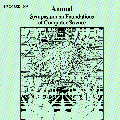The 3SUM problem is one of the cornerstones of fine-grained complexity. Its study has led to countless lower bounds, but as has been sporadically observed before -- and as we will demonstrate again -- insights on 3SUM can also lead to algorithmic applications. The starting point of our work is that we spend a lot of technical effort to develop new algorithms for 3SUM-type problems such as approximate 3SUM-counting, small-doubling 3SUM-counting, and a deterministic subquadratic-time algorithm for the celebrated Balog-Szemer\'edi-Gowers theorem from additive combinatorics. As consequences of these tools, we derive diverse new results in fine-grained complexity and pattern matching algorithms, answering open questions from many unrelated research areas. Specifically: - A recent line of research on the "short cycle removal" technique culminated in tight 3SUM-based lower bounds for various graph problems via randomized fine-grained reductions [Abboud, Bringmann, Fischer; STOC '23] [Jin, Xu; STOC '23]. In this paper we derandomize the reduction to the important 4-Cycle Listing problem. - We establish that \#3SUM and 3SUM are fine-grained equivalent under deterministic reductions. - We give a deterministic algorithm for the $(1+\epsilon)$-approximate Text-to-Pattern Hamming Distances problem in time $n^{1+o(1)} \cdot \epsilon^{-1}$. - In the $k$-Mismatch Constellation problem the input consists of two integer sets $A, B \subseteq [N]$, and the goal is to test whether there is a shift $c$ such that $|(c + B) \setminus A| \leq k$ (i.e., whether $B$ shifted by $c$ matches $A$ up to $k$ mismatches). For moderately small $k$ the previously best running time was $\tilde O(|A| \cdot k)$ [Cardoze, Schulman; FOCS '98] [Fischer; SODA '24]. We give a faster $|A| \cdot k^{2/3} \cdot N^{o(1)}$-time algorithm in the regime where $|B| = \Theta(|A|)$.
翻译:暂无翻译





